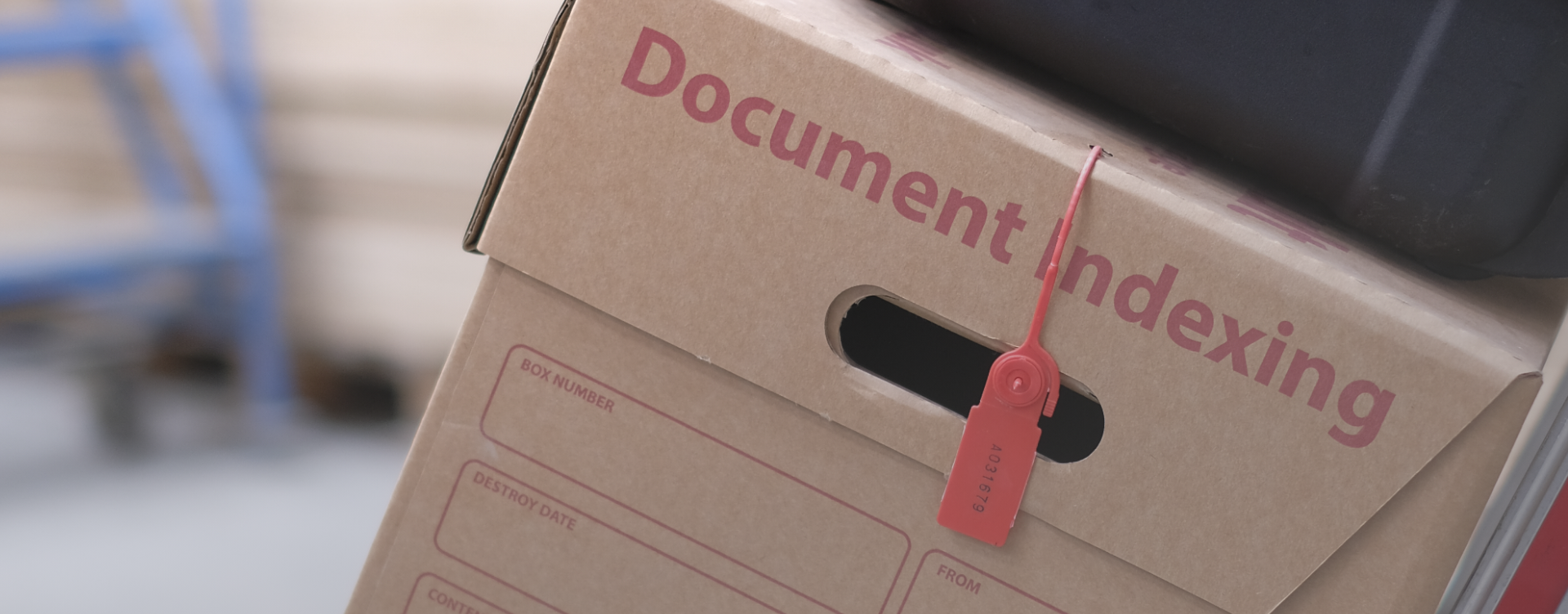In any business, document retention can be a challenge. Knowing which documents to keep and for how long can be particularly difficult as there are various time frames for different types of record.
As there are legal requirements for document retention in the UK, overcoming these challenges and staying on top of the amount of data and number of documents being produced is a must. A document retention policy can help you to do this. But what should it include?
Each department within a company is required to keep different records over varying periods of time. This means that companies need to have several document retention policies that relate to specific departments. In the UK, you need to remember that HMRC (HM Revenues & Customs) will penalise companies that don’t retain relevant records for the specific required time.
Below, we have examined some of the records you may need to keep. This list is not exhaustive, so make sure you refer to the government guidance about developing your own document retention policy.
Accounting document retention policy
As a general rule of thumb, tax returns, financial statements and accounting records should be retained for a minimum of six years. This six-year period should start from the end of the last company financial year that the record relates to. However, this timescale could vary depending on the type of tax that is paid and the industry your business is in.
Your accounting document retention policy should also take into account that some records may need to be kept for longer than six years.
This will be the case if:
- You have purchased something that will last more than six years, such as machinery.
- The record contains a transaction that covers more than one of your accounting periods.
- A Company Tax Return was submitted late.
- HMRC starts a compliance check into your Company Tax Return.
HR document retention periods in the UK
HR documents can contain a huge variety of data, from the number of hours worked by employees to their absence records and pay. Your HR document archiving may also include accident books, furlough records and payroll.
In general, HR records (except salary and pay details) are kept for a minimum of three years. However, because payroll, for instance, needs to be kept for at least six years, you may want to make it a general policy for all of your HR records. If you are unsure, it’s best to consult the government guidance.
Company record retention
General company documentation can include contracts and business agreements, which need to be kept for a minimum of six years. You will also need to keep your physical business insurance documents and any relevant certificates for at least seven years after the policy has finished.
If you are a limited company, you will also need to retain other important company records.
These include:
- Details of your directors, company secretaries and shareholders.
- The records of votes and resolutions by shareholders.
- Records of promises made by your company to repay loans.
- Records of promises for payments your company makes should something go wrong and the company is at fault.
- Transaction records if someone buys a share in the company.
- Any loans or mortgages that are secured against your company assets.
- Your register of ‘people with significant control’.
GDPR data retention
Since the introduction of the General Data Protection Regulation in May 2018, it has become even more imperative to maintain a document archive of items such as accident logs and maternity and paternity records. The Information Commissioner’s Office (ICO), the GDPR regulator, provides guidance as to what records need to be retained in order to comply with GDPR.
These include:
- Application and recruitment records – six to 12 months.
- Accident records – three years.
- Maternity and paternity records – three years.
- Parental leave records – five years (from birth/adoption) or 18 years (if child receives disability allowance).
- Pension benefits – 12 years, from end of payable benefits.
- Redundancy records – six years.
- Sickness absence records – three months minimum but could be up to six years from end of employment.
- Personnel/training records – six years, from end of employment.
In truth, these records should already be retained by businesses under the Data Protection Act, but the introduction of GDPR has re-highlighted what needs to be kept.
The GDPR also goes further in terms of HR documentation. HR departments are now required to state why information is being retained, and for how long, for every category of personnel data.
A suitable filing system
Today, many of these records can be stored digitally. However, there are some documents, such as those with a notary seal or an original signature, which need to be retained as physical copies. Check with your accountant or lawyer if you are unsure.
The amount of data a business collects can be huge and can often appear overwhelming. Making sure that all documents and records are categorised into the right file and then catalogued and stored correctly is essential to reducing risk. Filing in an organised way allows for easy identification and retrieval of documents, be it for HMRC or your accountants, to restore a client’s information, or to identify data that is due to be destroyed.
Establishing a document retention policy for each department will enable your business to monitor and analyse your document archive, thereby reducing administration, legal risks and costs as well as ensuring compliance with regulatory bodies.
Using a records storage facility
Many businesses partner with a dedicated records storage facility, such as Archive-Vault, for professional support. We will quickly get to grips with the nature of your business and will be able to assist in the categorisation and management of your document archive.
We will also keep the records protected throughout their retention lifecycle until they are due to be destroyed.
At Archive-Vault, we understand the importance of business document retention, helping businesses to not only meet their legal and regulatory obligations, but also securely organise, categorise, store and retrieve information at the right time, for the right people, in the right place. We specialise in making the process of document archiving simple, seamless and stress free.
If you would like to talk to us about your document retention needs, please get in touch. You can call us on 01603 720722 or email info@archive-vault.co.uk.











